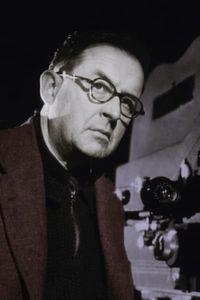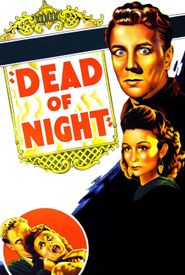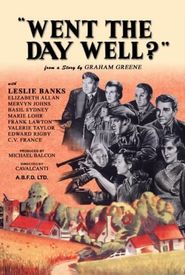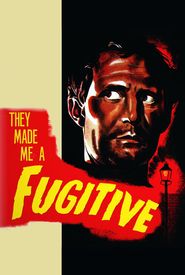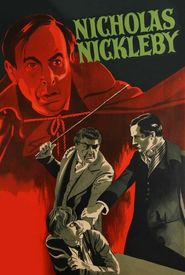Alberto de Almeida Cavalcanti, a renowned Brazilian-born film director and producer, was born in the vibrant city of Rio de Janeiro to a family of notable mathematicians. His early years were marked by an extraordinary display of intellectual prowess, as he demonstrated a precocious aptitude for learning. This innate curiosity and thirst for knowledge led him to pursue higher education at a remarkably young age, with his academic journey commencing at the tender age of 15 when he enrolled in the study of law at a prestigious university.
After a heated disagreement with a professor, he was abruptly and unceremoniously expelled from his academic institution, prompting his father to take decisive action and dispatch him to Geneva, Switzerland, with a specific condition: that he refrain from pursuing a career in law or politics.
Undeterred by this unexpected turn of events, Cavalcanti made the unconventional decision to redirect his academic focus towards the field of architecture, and at the tender age of 18, he embarked on a new journey by relocating to the City of Light, Paris, where he secured a position with a renowned architect.
However, his curiosity and creative inclinations soon led him to make a career shift, and he transitioned into the realm of interior design, where he would go on to hone his skills and establish himself as a talented and innovative practitioner in his chosen field.
Following a sojourn in his native Brazil, he secured a position at the Brazilian consulate in Liverpool, England, where he cultivated a correspondence with Marcel L'Herbier, a prominent figure in France's pioneering avant-garde film movement.
This fruitful exchange ultimately led to a job offer from L'Herbier, inviting Cavalcanti to assume the role of set designer, and in 1920, he relinquished his position at the Consulate to embark on a new chapter in France, working under the esteemed direction of L'Herbier.
Cavalcanti's creative endeavors soon shifted from merely assisting others to spearheading his own filmmaking endeavors, marking a significant milestone in his career as he stepped behind the director's chair for the first time in 1926.
His inaugural directorial effort, "Rien Que les Heures" (or "Nothing But Time" in English),was a cinematic masterpiece that masterfully captured the essence of Parisian daily life, weaving together a tapestry of moments that showcased the city's vibrant energy and its citizens' everyday routines.
Just a year later, in 1927, Cavalcanti collaborated with the renowned filmmaker Walter Ruttmann on a similar project, this time set in the bustling metropolis of Berlin. The resulting film, "Berlin: Die Sinfonie der Großstadt" (or "Berlin: Symphony of a Big City" in English),was a stunning visual representation of the city's rhythm and pulse, expertly capturing the sights, sounds, and emotions that defined urban life in the 1920s.
Through these early works, Cavalcanti demonstrated his unique talent for capturing the essence of urban life, and his collaborations with other visionary filmmakers would continue to shape his artistic vision and push the boundaries of cinematic storytelling.
John Grierson's GPO Film Unit was the next destination for the filmmaker after he parted ways with Paramount's French studios in 1933, following a period of making commercially driven films that failed to spark his creative passion. Upon his return to England, he found a new sense of purpose and fulfillment within the GPO Film Unit, where he was afforded the opportunity to work in a variety of capacities, including production and sound engineering, allowing him to diversify his skills and contribute to the creation of a wide range of films.
John Grierson's GPO Film Unit was the next destination for the filmmaker after he parted ways with Paramount's French studios in 1933, following a period of making commercially driven films that failed to spark his creative passion. Upon his return to England, he found a new sense of purpose and fulfillment within the GPO Film Unit, where he was afforded the opportunity to work in a variety of capacities, including production and sound engineering, allowing him to diversify his skills and contribute to the creation of a wide range of films.
John Grierson's GPO Film Unit was the next destination for the filmmaker after he parted ways with Paramount's French studios in 1933, following a period of making commercially driven films that failed to spark his creative passion. Upon his return to England, he found a new sense of purpose and fulfillment within the GPO Film Unit, where he was afforded the opportunity to work in a variety of capacities, including production and sound engineering, allowing him to diversify his skills and contribute to the creation of a wide range of films.
John Grierson's GPO Film Unit was the next destination for the filmmaker after he parted ways with Paramount's French studios in 1933, following a period of making commercially driven films that failed to spark his creative passion. Upon his return to England, he found a new sense of purpose and fulfillment within the GPO Film Unit, where he was afforded the opportunity to work in a variety of capacities, including production and sound engineering, allowing him to diversify his skills and contribute to the creation of a wide range of films.
John Grierson's GPO Film Unit was the next destination for the filmmaker after he parted ways with Paramount's French studios in 1933, following a period of making commercially driven films that failed to spark his creative passion. Upon his return to England, he found a new sense of purpose and fulfillment within the GPO Film Unit, where he was afforded the opportunity to work in a variety of capacities, including production and sound engineering, allowing him to diversify his skills and contribute to the creation of a wide range of films.
John Grierson's GPO Film Unit was the next destination for the filmmaker after he parted ways with Paramount's French studios in 1933, following a period of making commercially driven films that failed to spark his creative passion. Upon his return to England, he found a new sense of purpose and fulfillment within the GPO Film Unit, where he was afforded the opportunity to work in a variety of capacities, including production and sound engineering, allowing him to diversify his skills and contribute to the creation of a wide range of films.
John Grierson's GPO Film Unit was the next destination for the filmmaker after he parted ways with Paramount's French studios in 1933, following a period of making commercially driven films that failed to spark his creative passion. Upon his return to England, he found a new sense of purpose and fulfillment within the GPO Film Unit, where he was afforded the opportunity to work in a variety of capacities, including production and sound engineering, allowing him to diversify his skills and contribute to the creation of a wide range of films.
John Grierson's GPO Film Unit was the next destination for the filmmaker after he parted ways with Paramount's French studios in 1933, following a period of making commercially driven films that failed to spark his creative passion. Upon his return to England, he found a new sense of purpose and fulfillment within the GPO Film Unit, where he was afforded the opportunity to work in a variety of capacities, including production and sound engineering, allowing him to diversify his skills and contribute to the creation of a wide range of films.
John Grierson's GPO Film Unit was the next destination for the filmmaker after he parted ways with Paramount's French studios in 1933, following a period of making commercially driven films that failed to spark his creative passion. Upon his return to England, he found a new sense of purpose and fulfillment within the GPO Film Unit, where he was afforded the opportunity to work in a variety of capacities, including production and sound engineering, allowing him to diversify his skills and contribute to the creation of a wide range of films.
John Grierson's GPO Film Unit was the next destination for the filmmaker after he parted ways with Paramount's French studios in 1933, following a period of making commercially driven films that failed to spark his creative passion. Upon his return to England, he found a new sense of purpose and fulfillment within the GPO Film Unit, where he
The individual in question dedicated a significant portion of his professional career to the GPO Film Unit, a tenure that spanned an impressive seven years. During this period, he was heavily involved in numerous projects, often toiling behind the scenes without receiving formal recognition for his contributions. Instead, he opted to focus on nurturing the talents of emerging filmmakers, playing the role of a mentor and guiding light to many aspiring professionals.
As the years progressed, the individual's role within the GPO Film Unit evolved. In 1937, he was temporarily appointed as the acting head of the organization following the departure of Grierson, who had relocated to Canada. However, despite his temporary leadership position, the individual ultimately decided to leave the unit when he was informed that the permanent head position could only be secured by acquiring British citizenship through naturalization.
In the year 1940, a significant career milestone was achieved by Cavalcanti, as he joined the esteemed Ealing Studios, led by the visionary producer Michael Balcon. Within this prestigious organization, Cavalcanti multifacetedly contributed his talents, assuming the roles of art editor, producer, and director, thereby solidifying his position as a versatile and accomplished filmmaker.
Some of the most notable and enduring works of this period, which would subsequently come to define Cavalcanti's artistic trajectory, include the 1941 release "Yellow Caesar", the 1942 cinematic masterpiece "Went the Day Well?", the 1943 film "Three Songs of Resistance", the 1944 production "Champagne Charlie", the 1945 co-directed endeavor "Dead of Night", and the 1947 adaptation of Charles Dickens' classic novel "Nicholas Nickleby".
In the year 1946, a significant turning point occurred in the career of the renowned filmmaker, Alberto Cavalcanti, as he decided to part ways with Ealing Studios due to a disagreement regarding financial compensation. This pivotal moment marked the beginning of a new chapter in Cavalcanti's life, as he went on to helm three more feature films in the United Kingdom before making the decision to return to his native Brazil in the year 1950.
Upon his return to Brazil, Cavalcanti took on a new role as a producer for Companhia Cinematográfica Vera Cruz, a prominent film production company. However, despite his best efforts, the company ultimately succumbed to financial difficulties, leaving Cavalcanti to face the challenges that came with navigating the complex landscape of the film industry.
After being officially ostracized and professionally boycotted due to his alleged communist affiliations in Brazil, a beleaguered individual made the bold decision to relocate back to the European continent in the year 1954, marking the beginning of a new chapter in his life.
Following this significant move, he eventually found himself settling in the culturally rich and historically significant country of France, where he continued to build upon his already impressive body of work in the television industry.
Throughout the remainder of his life, he remained dedicated to his craft, pouring his heart and soul into his projects, and leaving a lasting impact on the world of television.
Tragically, his life came to a close on a somber note, as he passed away in the City of Light, Paris, in the year 1982, at the ripe old age of 85, leaving behind a legacy that would continue to inspire and influence generations to come.
